Podcasts
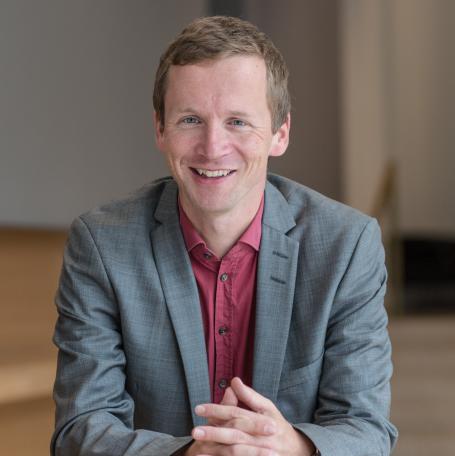
A Global Moment in the Middle Ages
In this interview, Martin Bauch discusses his research into the eruption of the Samalas volcano in 1257 in Indonesia. Based on a wide range of information sources, including chronicles from Europe, the Middle East and the Far East, dendrochronology and ice-core dating, Martin explains how this massive eruption had an impact on world-wide climate patterns over several years. Martin’s focus is on central and southern Europe, and here he demonstrates how the shifting climate influenced economics, trading patterns, public health and potentially even the design of cultural artefacts.
The effect of the Samalas eruption was noted throughout the world, often, but not always, with a negative impact. As many of the changes wrought by the eruption and subsequent change of weather patterns were long term or permanent, Martin describes this as a truly global moment in the Middles Ages.
Martin Bauch is the leader of a group researching medieval climate history and climate change at the Leibniz Institute for the History and Culture of Eastern Europe (GWZO) in Leipzig.
This podcast is part of a series of interviews covering central Europe in the medieval period for MECERN and CEU Medieval Studies.
Mapping Castles, Churches and Cemeteries to Show How Central Europe Became Christian
In this interview, Maria Vargha discusses her recent and current research into early Christianisation on the edges of what came to be known as the Holy Roman Empire.
Using a vast amount of archaeological and historical data, and spatial and network analysis, Maria shows how different regions of Central Europe were Christianised and the power dynamics that were involved. Her innovative approach focusses on the lowest rungs of society, the rural peasants, and the networks of churches that served them.
This research will result in an open-access data base of archaeological and historical data covering Central Europe in the 11th and 12th centuries. The data base will include all known settlement and burial sites, and all known data of secular and sacred power of the period.
Mária Vargha is Assistant Professor for Spatial Approaches to Medieval Studies at University of Vienna.
This podcast is part of a series of interviews covering central Europe in the medieval period for MECERN and CEU Medieval Studies.
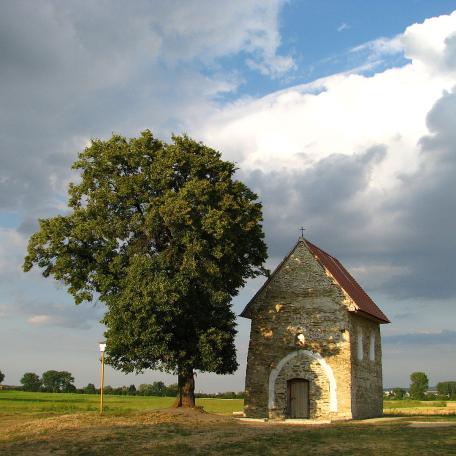
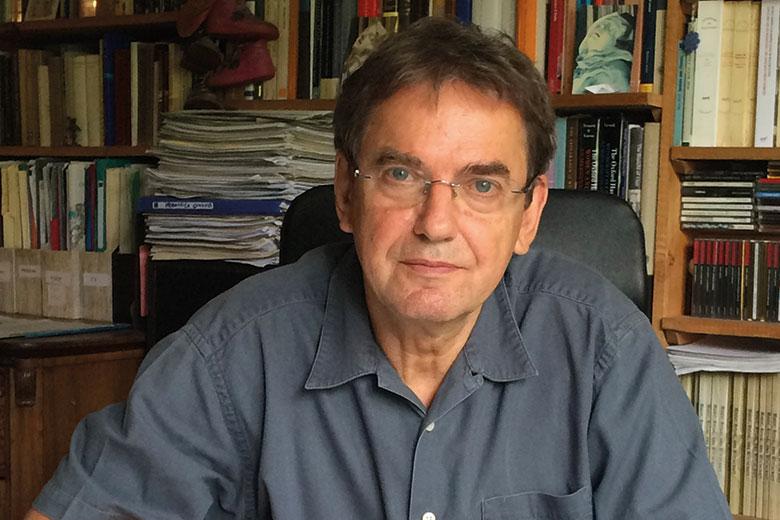
Central European Medieval Texts
In episode 5 of the CEU Press Podcast Series the team of CEU Press sat down with Professor Gábor Klaniczay from the CEU’s Department of Medieval Studies to discuss one of CEU Press’s longest running series, Central European Medieval Texts (CEMT) and his new edited volume within this series, entitled The Sanctity of the Leaders.
The CEMT series presents the best available critical editions of the original versions of medieval Central and Easter European texts in English-Latin bilingual editions with extensive annotations for readers less familiar with the history and geography of the region. To learn more about the series, click here: Central European Medieval Texts.
The new edition in the series, The Sanctity of the Leaders, presents the vita of the Hungarian holy kings Stephen and St Ladislaus, the Bohemian holy duke Emeric and the holy Abbott Prokop of Sázava alongside three bishops: the Venetian-Hungarian Gellért of Csanád, the Polish Stanislas of Cracow, and the Dalmatian holy bishop St John of Trogir. To learn more about the book, click here: The Sanctity of the Leaders.
The CEU Press Podcast Series delves into various aspects of the publishing process: from crafting a book proposal, finding a publisher, responding to peer review feedback on the manuscript, to the subsequent distribution, promotion and marketing of academic books. They will also talk to series editors and authors, who will share their experiences of getting published and talk about their series or books.
The Right of Reprisal – a Customary Law of International Trade
In this interview, Leslie Carr-Riegel discusses her research into inter-state mercantile trade in the medieval period and the ways in which the Right of Reprisal influenced that trade. Leslie explains that a reprisal was a legal instrument that compensated for losses due to theft and the non-payment of debts and doweries. Her on-going, summative work compares reprisals, and the process of gaining reprisals throughout Europe during the whole medieval period. Surprisingly, she shows that reprisals functioned in a very similar way at a time when most aspects of trade were variable and determined locally. Leslie also explains how reprisals influenced state-building and the development of inter-state trade treaties.
Leslie Carr-Riegel completed her dissertation at the Central European University in 2021 on Italian Polish relations 1300-1500. Furthermore, she is Fellow at the Käte Hamburger Kolleg Münster, Germany “Legal Unity and Pluralism”.
This podcast is part of a series of interviews covering central Europe in the medieval period for MECERN and CEU Medieval Studies.
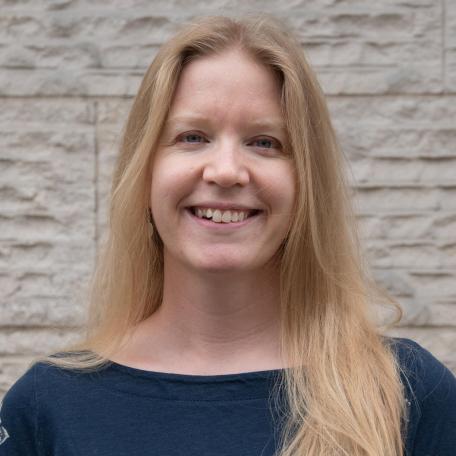
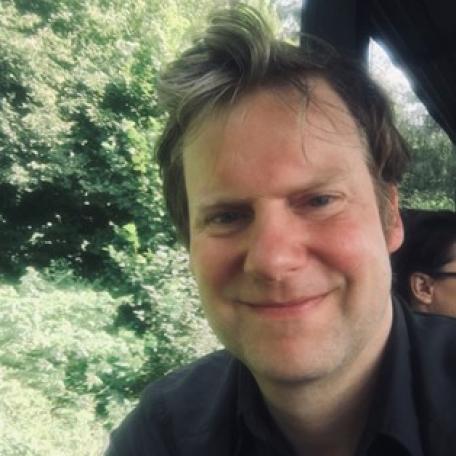
Public Politics and Private Piety – Representations of Rulership in Late Medieval Bohemia
In this interview, Grischa Vercamer discusses his on-going research into the representation of rulership in late medieval Central Europe. The interview focuses on the chronicles of Eberhard Windeck, a merchant and close advisor to the Holy Roman Emperor, Sigismund of Luxemburg. Grischa considers how Windeck presents Sigismund to his readers in terms of politics and piety, and compares this presentation with other sources, including other late medieval chronicles of rulers. Based on this comparative research Grischa offers us a deep insight into the writing of Eberhard Windeck, the roles of medieval rulership and the public persona and private piety of Sigismund of Luxemburg.
Grischa Vercamer is an interim professor for European regional history at Chemnitz University of Technology, Germany.
This podcast is part of a series of interviews covering central Europe in the medieval period for MECERN and CEU Medieval Studies.
Urban Demography, Migrants and Masters – a case study of Cluj in the late Middle Ages
In this interview, Agnes Flora discusses her research into the city archives in Cluj in Transylvania, Romania. She highlights the changes in urban demography that occurred due to inward migration, encouraged by the city council which needed both tax revenue and labour. Agnes explains how Cluj promoted the inward movement of peasants from the city’s hinterland, and welcomed longer distance skilled craftsmen as migrants, and how these two migration movements impacted the style and business of the city. She also offers fascinating insights into the working and personal life of one Italian migrant as he becomes a citizen of Cluj and finally a Guild Master and leading political figure within the city.
Agnes Flora is an archivist at the Romanian National Archives in Cluj, Romania.
This podcast is part of a series of interviews covering central Europe in the medieval period for MECERN and CEU Medieval Studies.
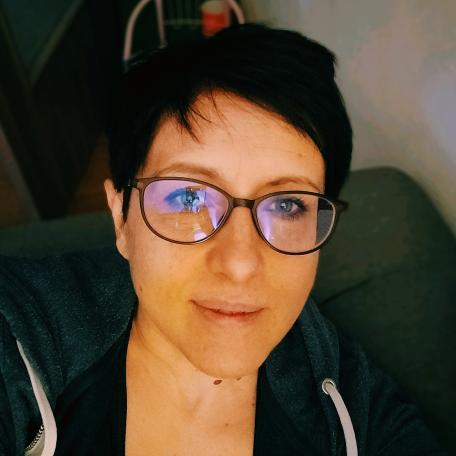
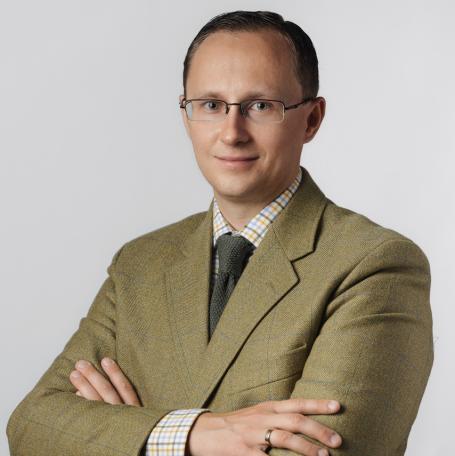
Medieval Liturgy and the Making of a Political Identity – A Case Study of Poland circa 1000
In this interview, Paweł Figurski talks with Karen Culver about his current research into medieval liturgy and the making of Polish political identity around the year 1000. In this newly Christianised region, Paweł shows how the liturgy was used, not only to spread the Christian message, but also to build awareness of the emerging early medieval state through the repetition of rulers’ names and propagation of the new name of a country (Polonia). This ritual was a key part in building a political identity not only among the literate clergy, but also with more straightforward means among the other members of the political elite.
Paweł Figurski is Assistant Professor at the Polish Academy of Sciences and a Humboldt Research Fellow at the University of Regensburg, Germany.
This podcast is part of a series of interviews covering Central Europe in the medieval period for MECERN and CEU Medieval Studies.
In the interview the following recordings have been utilized. We thank the authors for enabling us to share medieval music in the podcast:
- “Annua recolamus” from the album Sacer Nidus – Św. Wojciech, Bolesław I. Chrobry i Otton III. w muzyce średniowiecznej by Ensemble Peregrina, dir. Agnieszka Budzińska-Bennett, Raumklang 2011.
- Exultet chant based on the Gradual of Bolesław II of Mazovia, MNK Czartoryski Museum in Kraków, Rr. 4922-4940 (olim: KrM MNK/XV/rys/2271-89), performed by Isabella Burns at the University of Notre Dame, 2015.
Scribal Additions: The Scribes, Their Humour, and their Nonsense
In this interview, Lucie Doležalová discusses her current research into the additions made by scribes at the end of their copied texts in late medieval Bohemia. Lucie shows how these seemingly personal additions, sometimes humorous, sometimes requesting rewards, sometimes nonsensical, were often quite formulaic. The research will map the scribal additions by time and place to identify the source of the more formulaic additions, and possibly the routes by which the ideas were transmitted.
Scribal additions also offer a rare glimpse over the shoulder of the scribe and allows us to see the material and physical nature of the scribes’ work of copying text, including his tiredness, hunger, and relief at finishing the task.
Lucie Doležalová is professor of Medieval Latin at the Charles University in Prague, Czech Republic.
This podcast is part of a series of interviews covering central Europe in the medieval period for MECERN and CEU Medieval Studies.
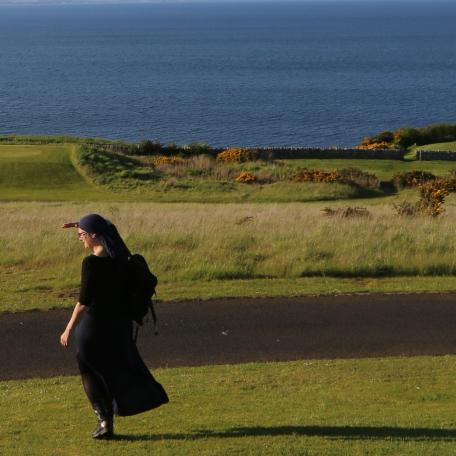
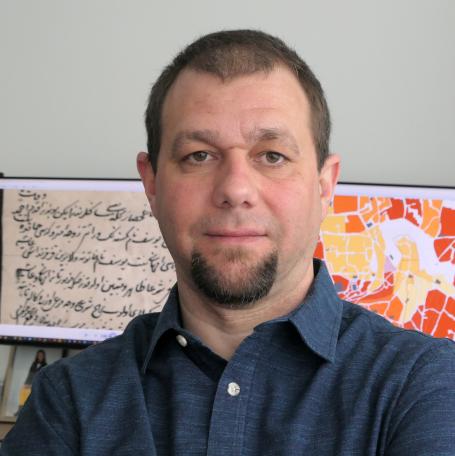
Waqf villages – Ottoman pious foundations, and populating the conquered lands of the Balkans
In this interview, Grigor Boykov discusses his research into waqf villages in Bulgaria during the early Ottoman period. Ottoman landholders in the conquered territories founded waqf villages to create a stream of income that they endowed to religious or social welfare activities within the Ottoman empire. Grigor’s research using the original Ottoman tax and legal records, and techniques of modern spatial analysis, shows the waqf also were instrumental in re-populating empty lands, maintaining social order, increasing the value of the land, and safeguarding the heredity rights of the landholders.
Grigor Boykov is Assistant professor in the Institute for East European history at University of Vienna, Austria.
This podcast is part of a series of interviews covering central Europe in the medieval period for MECERN and CEU Medieval Studies.
The Gothic Architect – an International, Professional Elite
In this interview, Jana Gajdosova talks about her research into the architects, their lives, their business practice, and their architecture during the late gothic period. The conversation focusses on the architects Peter Parler, who worked on Prague Cathedral, and Lorenz Lechler, both of whom may be described as members of an international, professional elite of the middle-ages.
Jana Gajdosova is a medieval art specialist at Sam Fogg, an international art dealership and gallery in London, GB.
Link to the video of the Lorenz Lechler drawing: https://vimeo.com/666276544
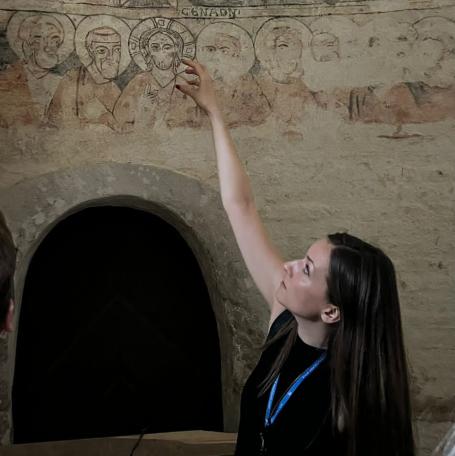
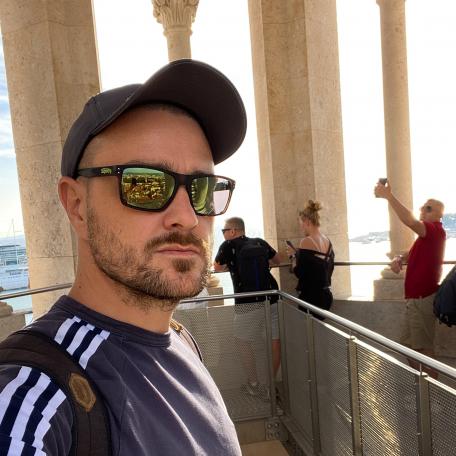
Conflict, Collusion, and an Unholy Alliance – Diplomatic Relationships in 14th Century Balkans
In this interview, Emir Filipovic discusses his research into conflict, collusion, and diplomacy in 14th century Balkans. This was a period and region of great change, with competing powers, shifting alliances, and much political and military complexity. The Byzantium empire was in slow decline and emerging powers were competing for a slice of the Byzantine cake; there were shifting alliances; two Popes were both bidding for influence, and the phrase ‘the enemy of my enemy is my friend’ had true meaning. Amongst all of this, an alliance was formed between a Christian king and the Ottoman Sultan Bayezid, potentially to be confirmed by a marriage which, if it had taken place, would have placed a member of the Ottoman ruling family in a significant position in a European, Christian, royal dynasty.
Emir Filipovic is Associate Professor of Medieval History at the University of Sarajevo, Bosnia-Herzegovina.
This podcast is part of a series of interviews covering central Europe in the medieval period for MECERN and CEU Medieval Studies.
Aquincum, the Town and its Legacy
In this interview, Orsolya Lang talks about her work in the town of Aquincum on the Roman Limes, and its legacy on the early medieval period. Orsolya discusses Aquincum, which at its height had a population of around 60,000, including a legionary fortress, administrative centre and civil town, and the settlement was an important part of the global Roman world. Aquincum initially absorbed and ‘Romanised’ settlers from outside the empire, but with the gradual decline of the empire, semi-nomadic ‘barbarian’ tribes from regions north and east of the Limes slowly replaced the settled, urban, Roman population. These people brought new cultures and new life styles, and with them the early middle-ages emerged.
Orsolya Lang is archaeologist and the current Director of the Aquincum Museum in Budapest, Hungary.
This podcast is part of a series of interviews covering central Europe in the early and medieval period for MECERN and CEU Medieval Studies.
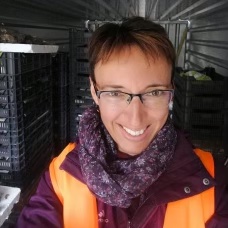
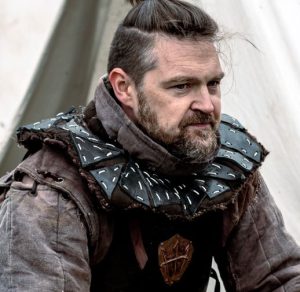
Rituals and the Legitimisation of Rulership in the High Middle Ages in Bohemia
In this interview, Robert Antonín discusses his research into the importance of rulership rituals in the High Middle Ages, Bohemia. He shows how the visualization of rulership through the public display of ritual built the legitimacy of the ruler, and how the public acceptance of this legitimacy enhanced social cohesion and stability. While Robert’s research period is the high medieval, he suggests a similar process happens in today’s modern democracies.
Robert Antonín is Associate Professor of History at the University of Ostrava, Czech Republic.
This podcast is part of a series of interviews covering central Europe in the medieval period for MECERN and CEU Medieval Studies.
The Story of the Book - How the "Oxford Handbook of Medieval Central Europe 800 – 1600" was made
The ‘Oxford Handbook of Medieval Central Europe 800 – 1600’ was conceived in Budapest, Hungary in 2014, outlined in Olomouc, Czechia in 2016 and finally published by Oxford University Press in 2022.
In this interview, the joint editors of the book, Nada Zečević and Daniel Ziemann, discuss the process of creating a Handbook that consists of twenty-four chapters written by over fifty different scholars spread throughout the world. They discuss how the book’s style and content was created, how the boundaries of chronology and geography were defined and agreed upon, and how they managed the many challenges of such an extensive subject and ambitious project. Nada and Daniel also reflect on the final chapter of the Handbook and consider the use, and potential abuse, of medieval history and the role that historians should play in presenting medieval history.
Nada Zečević teaches the history of the Balkans at Goldsmiths, University of London, where she also directs the Centre for the Study of the Balkans. Daniel Ziemann is Associate Professor at the Department of Medieval Studies at the Central European University in Vienna.
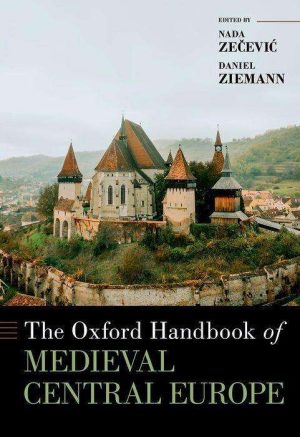
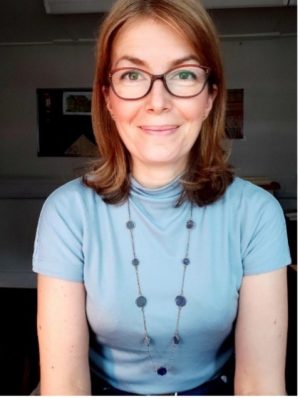
Royalty, Religion & Relics
In this interview, Zoë Opačić discusses her current research into how royalty, religion and relics impacted town planning and architecture, and thus changed the shape of major cities in central Europe. The interview focusses on Prague, Krakow and Vienna in the fifteenth century, specifically during the reigns of the Holy Roman Emperor Charles IV and Kasimir the Great.
Zoë Opačić is Senior Lecturer in the Department of the History of Art at Birkbeck College, University of London, UK.
This podcast is part of the series of podcasts for the CEU Department of Medieval Studies and MECERN.
Medieval and Macabre – Images of Death in Fifteenth Century Bohemia
In this interview, Daniela Rywikova talks about her book ‘Spectrum Mortis, The Image of Death in Late Medieval Bohemian Painting’. She considers how the people of Bohemia in the medieval period thought about death, represented death, prepared for their own death, and how the worlds of the living dead and the dead were compressed together in ways which are quite different from our own, modern approach to death and dying.
Daniela Rywikova is Associate Professor at the University of Ostrava, Czech Republic.
This podcast is part of the series of podcasts for the CEU Department of Medieval Studies and MECERN.
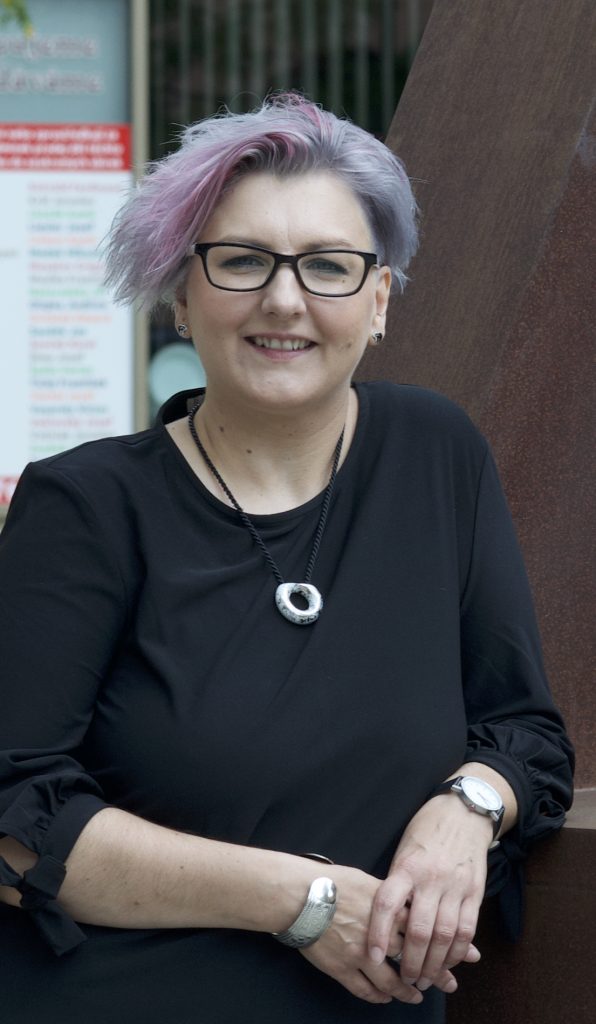

The Herders of Korčula: A study of a socio-professional community in Fifteenth Century Dalmatia.
In this interview, Fabian Kümmeler talks about his on-going research into the socio-professional community of herders on the island of Korčula in Venetian Dalmatia, in the fifteenth century. Based on largely neglected archival holdings from the Croatian State Archive in Zadar, which include business contracts, records of litigation and dispute resolution, Fabian describes how the herding business functioned, who was involved, the legal environment and how it was enforced. Together they offer a fascinating window into the daily life of the herders and their fellow islanders in 15th century.
Fabian Kümmeler is the APART-GSK Fellow at the Austrian Academy of Sciences and Principal Investigator of a project on “Pastoral Communities in Southeast Europe, 1400–1600”.
This podcast is part of a series for the CEU Department of Medieval Studies and MECERN.
Love, Marriage and Litigation in Fifteenth Century Bohemia.
In this interview, Michaela Antonin Malaníková discusses the marital disputes which resulted in litigation before ecclesiastical and municipal courts in the Bohemian lands, 1300 – 1500. She considers the general approach to marriage in the period, the different roles taken by the courts, and how the two juridical systems worked in harmony; she also discusses individual cases of alleged bigamy, mis-understood flirtation, pre-nuptial agreements and dissolution of marriage.
Michaela Antonín Malaníková is Assistant Professor in the Department of History, Faculty of Arts at Palacký University, Olomouc, Czech Republic.
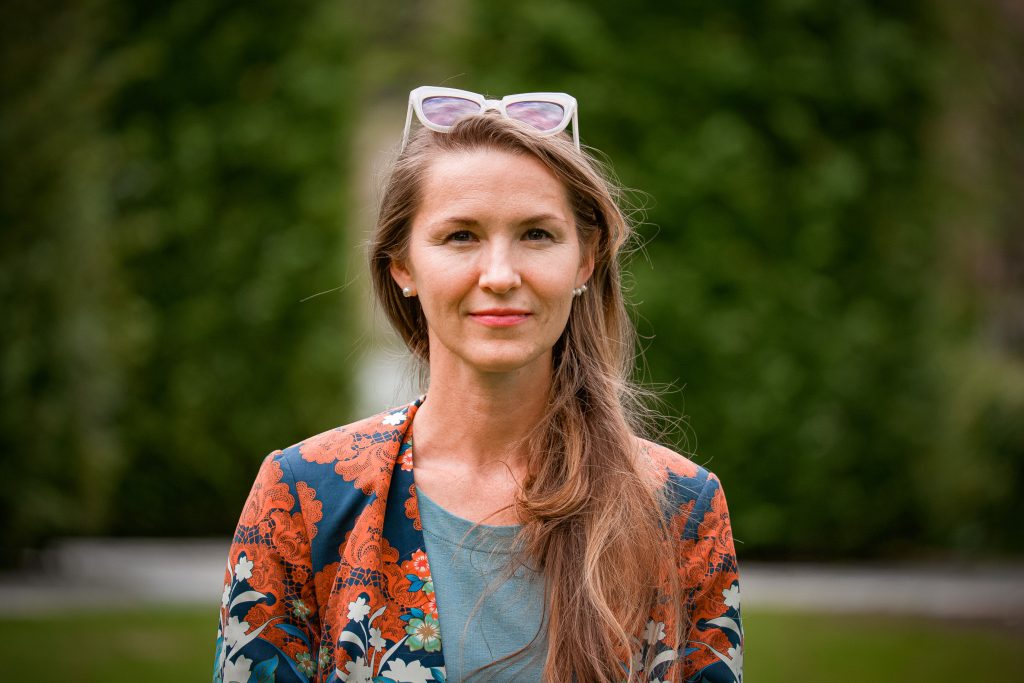
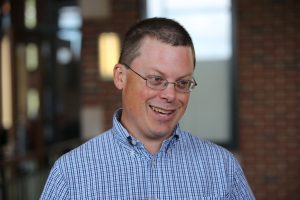
Rulers and Rulership in the Arc of Medieval Europe, 1000-1200.
In this interview, Christian Raffensperger discusses his current research and forthcoming book Rulers and Rulership in the Arc of Medieval Europe, 1000-1200. The ‘arc’ refers to a vast area from Iberia through Scandinavia, central Europe and Rus to Byzantium. In this work, he challenges the traditional construction of medieval Europe and its focus on England and France, while viewing other parts of Europe as ‘peripheral and other’. Christian also challenges the approach of medieval European research delineated by modern nation states, titles, and academic constructs.
Christian Raffensperger is Professor and Chair of the Department of History, Kenneth E. Wray Chair in the Humanities, Wittenberg University, USA.
A Military Analysis of the ‘Iron Gate’ Defence against the Ottoman Invasion of Hungary in the Fourteenth Century.
In this interview, Jason Snider talks about his research into the defence of the Kingdom of Hungary by the Teutonic Knights. He considers the defensive strategy from a military perspective and poses the question of why it failed.
Jason Snider is a Ph.D. student at the Central Europe University.
This podcast is part of the ‘New Faces, New Ideas’ series in which Ph.D. students in the CEU Department of Medieval Studies talk about their current research and future ambitions.
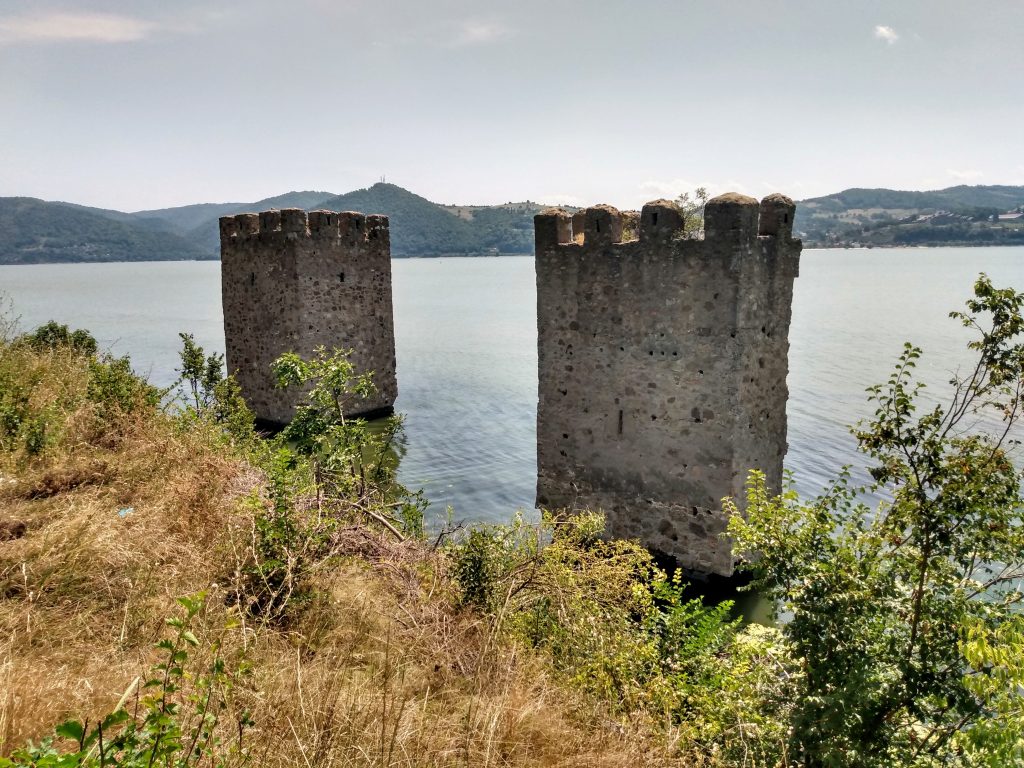
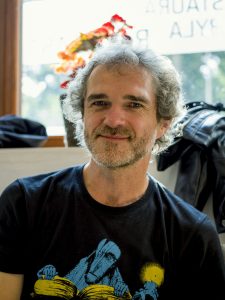
Pecchinoli and Capistrano
Antonin Kalous of Palacký University, Olomouc, is interviewed by Karen Culver. Antonin’s research mainly concerns late medieval religious processes and important figures from Central Europe.
Contact us
- mecern.mail@gmail.com
- website: mecern@mg.fak09.uni-muenchen.de
